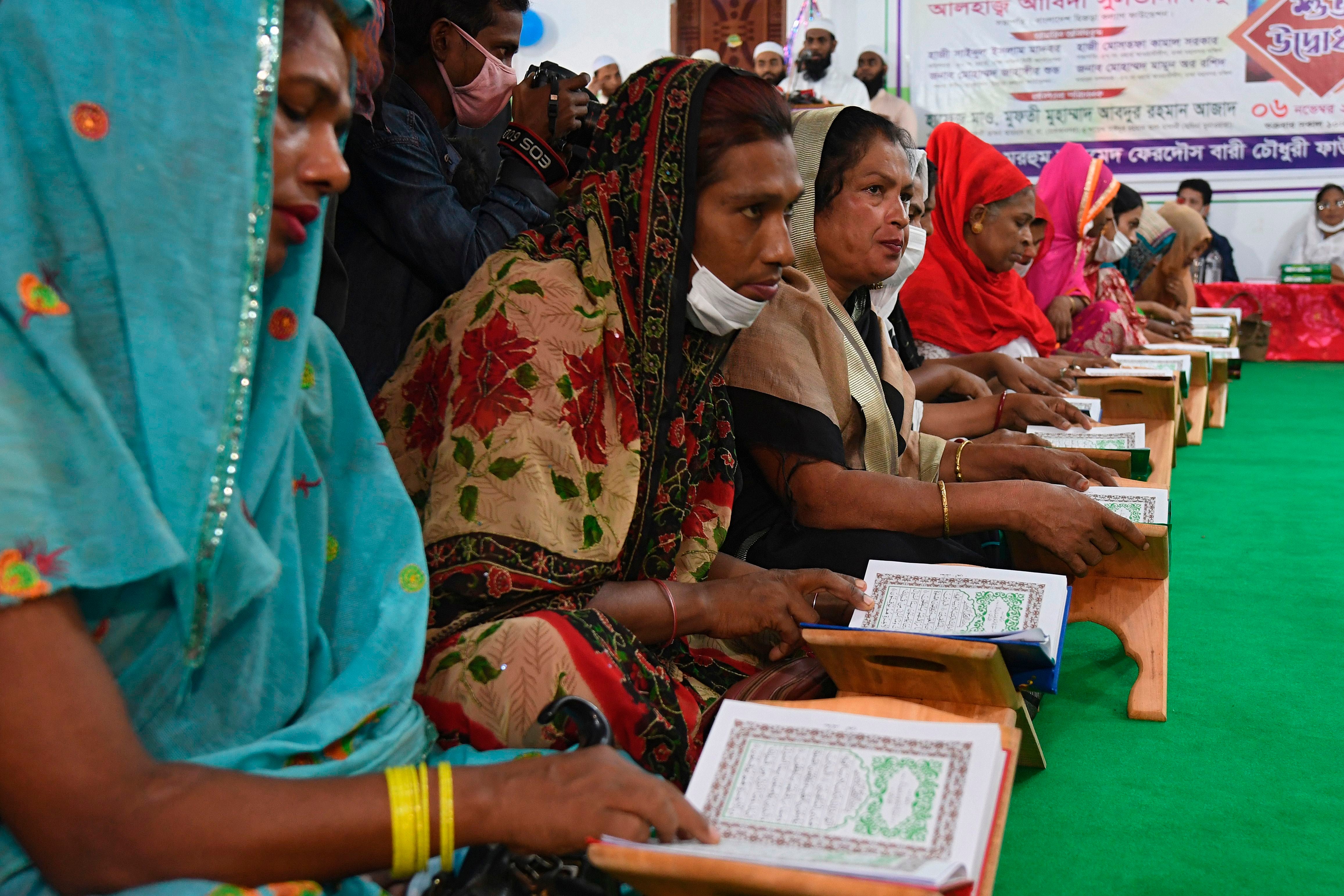First school for trans people in Bangladesh opens
For centuries transgenders in the subcontinent have faced ostracisation, but the school hopes to change that, at least for some

Your support helps us to tell the story
From reproductive rights to climate change to Big Tech, The Independent is on the ground when the story is developing. Whether it's investigating the financials of Elon Musk's pro-Trump PAC or producing our latest documentary, 'The A Word', which shines a light on the American women fighting for reproductive rights, we know how important it is to parse out the facts from the messaging.
At such a critical moment in US history, we need reporters on the ground. Your donation allows us to keep sending journalists to speak to both sides of the story.
The Independent is trusted by Americans across the entire political spectrum. And unlike many other quality news outlets, we choose not to lock Americans out of our reporting and analysis with paywalls. We believe quality journalism should be available to everyone, paid for by those who can afford it.
Your support makes all the difference.In a move to integrate the transgender community, Bangladesh has opened its first school dedicated solely to trans people in the capital city Dhaka, where they will teach Islamic values and vocational subjects.
The school is a privately funded madrasa (seminary) and has been made free of charge for a community that has so far lived cut off from society, only earning their livelihood through dancing in special functions.
Officials at the Dawatul Islam Tritio Linger Madrasa, or Islamic Third Gender School, said the institution will not have an age limit so that anyone can enrol and study. The madrasa’s education and training secretary, Mohammad Abdul Aziz Hussaini, told the BBC Bengali service: “Whether or not someone is of the third sex is identified at a fairly mature age. That’s why we don’t set any age limit. Anyone can be admitted here as soon as a transgender person is identified, no matter what age they are.”
The country recently identified trans people as a third gender through a new amendment in 2018, providing them with the right to vote and stand for election. According to government data, the country has a population of about 10,000 trans people, though other estimates say it could actually stand at over 50,000 people.
However, the community, locally called “Hijra”, has faced ostracisation for centuries. The traditional work of the community in the subcontinent has been to dance and sing at weddings, birthdays and auspicious occasions; many also resort to begging or prostitution.
A new student at the school, Shilpy, said most of the trans community were illiterate and did not have work opportunities.
“No one wants to hire us. If we had some education, we could have worked somewhere better. There is no education system. That is why we still do what our ancestors did and earn money by dancing and singing,” said Shilpy.
Talking about the bullying, Shilpy said: “When I realised I was a transgender person, then everyone in the school hated me, was afraid, criticised me. That’s why I didn’t study anymore. If there was a separate reading system for us, no one would tease.”
Shilpy added: “We also want to be like other people, to walk with dignity. We also want to stand on our own two feet. If I get a chance, I will go that way.”
Join our commenting forum
Join thought-provoking conversations, follow other Independent readers and see their replies
Comments